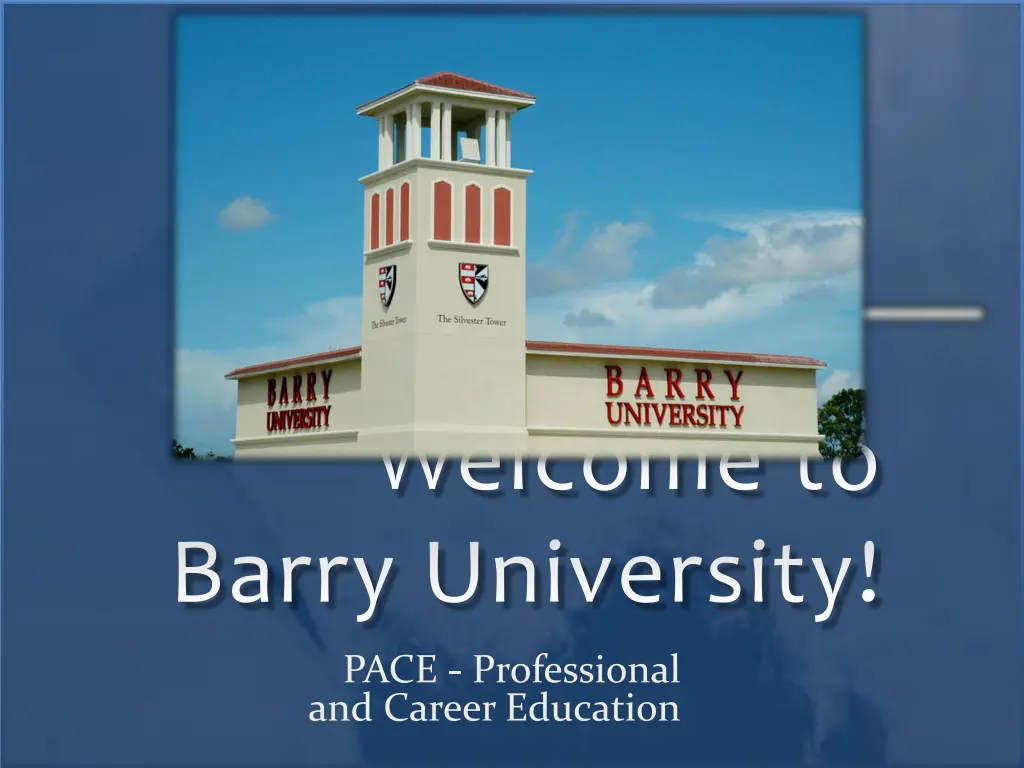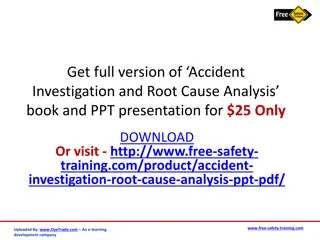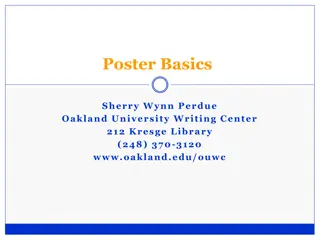
Enhancing Adult Learning: PACE Philosophy, Strategies, and Models
Explore how Barry University's PACE Philosophy supports adult learners, incorporating rich experiences and promoting real-world applications. Learn about the PACE learning model's core principles and applying it to teaching practices. Discover theories like Androgogy and the Kolb Model, which enhance adult learning through self-directed approaches and distinct learning styles.
Download Presentation

Please find below an Image/Link to download the presentation.
The content on the website is provided AS IS for your information and personal use only. It may not be sold, licensed, or shared on other websites without obtaining consent from the author. If you encounter any issues during the download, it is possible that the publisher has removed the file from their server.
You are allowed to download the files provided on this website for personal or commercial use, subject to the condition that they are used lawfully. All files are the property of their respective owners.
The content on the website is provided AS IS for your information and personal use only. It may not be sold, licensed, or shared on other websites without obtaining consent from the author.
E N D
Presentation Transcript
Welcome to Barry University! PACE - Professional and Career Education
PACE Philosophy The School of Professional and Career Education (PACE)supports the Barry Mission by addressing the unique needs of adult learners. PACE recognizes the rich experience adult learners bring to the classroom by incorporating that experience into the curriculum. PACE provides adult learners with research tools and analytical strategies with which to connect their experience to a broader body of knowledge and truth. Finally, PACE encourages adult learners to apply what they learn in the classroom to real-world solutions in their careers, their families, and their communities.
The PACE learning model is built on: Principles grounded in the Barry University and PACE mission and core commitments: 1. Faculty engagement and communication 2. Collaborative learning 3. Experiential learning 4. Academic rigor and high expectations 5. Social justice and service learning
Applying the PACE learning model to your teaching practice 1. Faculty engagement 2. Student collaboration 3. Active learning 4. Frequent and prompt feedback 5. Time on task 6. High expectations
Androgogy (Adult Learning) Malcolm Knowles theory of androgogywas an attempt to develop a theory specifically for adult learning. He emphasized that adults are self-directed and expect to take responsibility for decisions. Adult learning programs must accommodate this fundamental aspect. Strategies such as case studies, role playing, simulations, and self-evaluation are most useful. Instructors adopt a role of facilitator or resource rather than lecturer or grader.
Kolb Model Kolb's learning theory sets out four distinct learning styles (or preferences), which are based on a four-stage learning cycle.
Kolb Model, contd. Concrete experience the learner s focus is on being involved in experiences and dealing with immediate human situations in a personal way. Reflective observation the learner s focus is on understanding the meaning of ideas and situations by carefully observing and describing them. Abstract conceptualization the learner s focus is on using logic, ideas, and concepts to form generalizations and theories about the experience. Active experimentation the learner s focus is on actively influencing people and situations by testing and applying concepts in new situations.
PACE Student Tutoring Free tutoring is available to PACE (Professional and Career Education) students at all sites for Math (when MAT classes are offered) and Writing (every term for all disciplines). Please check with site management or administration for specific tutoring time and availability. The Writing Tutor assists all students within PACE with writing assignments and writing skills related to both coursework and the written portions of the Experiential Learning Portfolio. Tutors meet with both undergraduate and graduate students on a one-on one conferencing basis and make recommendations regarding structure, arrangement, logic, syntax, grammar and documentation styles, with an aim toward improving the overall quality of both the current writing project and future assignments. The Mathematics Tutor provides instructional support for students individually or in small groups. Tutors will assist students in all math/math-related subjects, maintain records, and advise faculty of students progress. We encourage you to make your students aware of the free tutoring. It is available for all disciplines, undergraduate and graduate courses, so we encourage you to refer your students who appear to need writing assistance. We all want to see our students succeed at PACE, and hope you will utilize and encourage the free tutoring as needed each term.
Library Resources Maria Gonzalez Reference and Instruction Librarian (305) 899-3761 http://www.barry.edu/library-services/
Encouraging Respectful Classroom Behavior Respectful behavior is important between student to instructor as well as instructor to student. Establish this policy early on. Encourage open communication with student if they are having difficulties. Let them know you are there to help them succeed. Encourage open communication with site management. Let them know if you encounter any disruptive or disrespectful students. Nip issues in the bud whenever possible!
Grade Disputes/Appeals 1. Student must speak to instructor in an effort to resolve the situation. Keep a paper trail!! 2. If resolution is not achieved, the student may file an appeal with their Academic Coordinator. 3. If still no resolution is reached, the student may file an appeal with the Assistant Dean for Academic Affairs. 4. If student wishes to appeal decision of PACE Deans, he/she may file a Grade Appeal form with Chairperson of University Committee on Grades 5. Read complete policy in student bulletin
Your Syllabus and Text Master syllabus is created by Academic Coordinator Submit for approval 30 days in advance Use only standardized text Instructor additions to syllabus include: Add your policies to General Information, i.e., attendance, plagiarism Add your weekly class schedule with dates Add your assignments and rubrics Add your contact information: use Barry email!
Assessment Logs Faculty who are assigned to teach a distribution course will find in their master syllabus a general education/distribution learning outcomes statement, an embedded assignment, and a grading rubric. Faculty should not change or alter these items. An embedded assignment is one which is relevant to the course and specifically designed to address the outcome. For example, this assignment could be the researching and writing of a paper on a topic, which is relevant to that outcome. At the end of the session in which a distribution course is taught, the instructor will receive an assessment log along with completion and submission instructions.
Welcome to Barry University!! and Thank You for all you do!!!






















